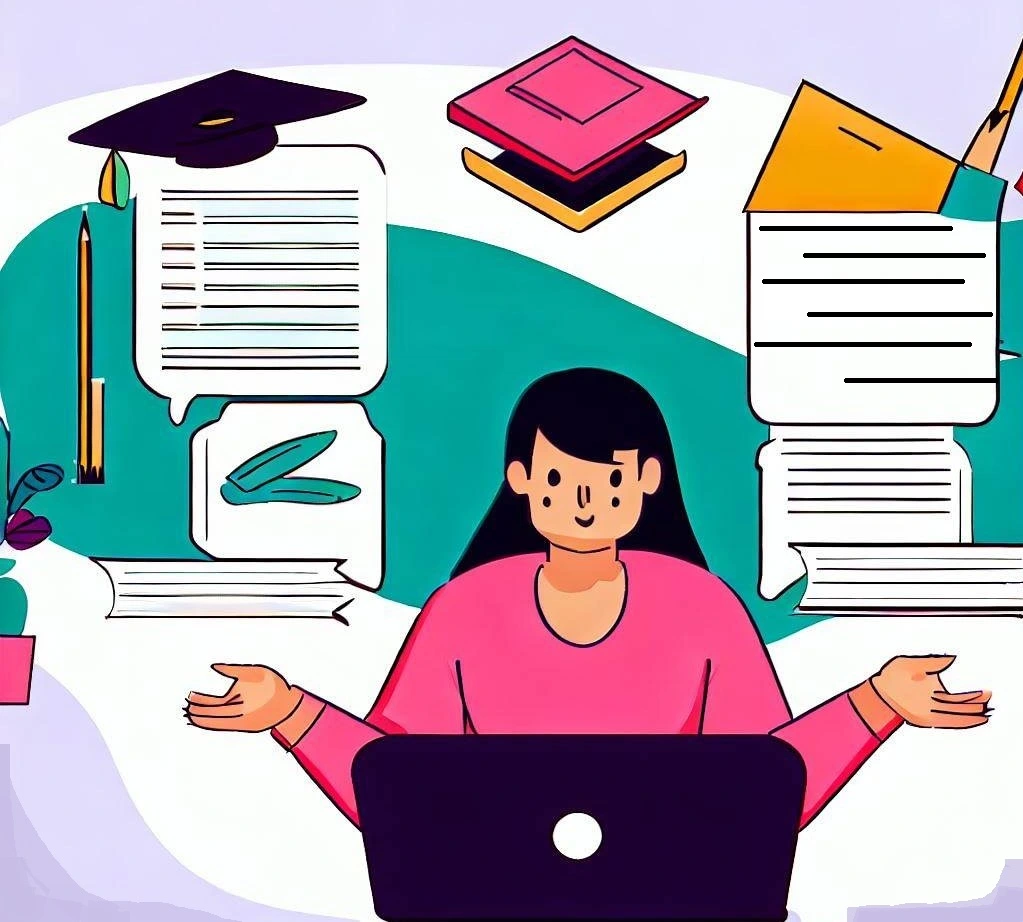Step-by-Step Approach to Complete Your OpenCV Assignments: A Complete Guide

Assignments using OpenCV can be difficult to complete, especially for students who are not yet familiar with computer vision and image processing. However, with the proper strategy and direction, you can effectively take on these assignments and produce excellent results. We'll give you a step-by-step process for completing your OpenCV assignments in this comprehensive guide. This guide will provide helpful insights and techniques to help you excel in your assignments, whether you are a beginner or have some experience with OpenCV.
Understanding OpenCV Assignments
It's crucial to comprehend the specifications and goals of an OpenCV assignment before beginning. The powerful tool known as OpenCV, or Open Source Computer Vision Library, is used for a variety of image and video processing tasks. You might be required to complete tasks like image editing, object detection, facial recognition, or even the development of computer vision applications. Take the time to read and fully understand the assignment prompt before starting the implementation.
Breaking Down the Assignment Requirements
It is essential to divide the requirements of an OpenCV assignment into smaller, more manageable tasks in order to successfully complete it. Find the main goals and deliverables by analyzing the assignment prompt. Take into account the input information, the anticipated results, and any detailed instructions. You can create a road map for your assignment and approach each task methodically by breaking down the requirements.

Planning Your Approach
Once you are aware of the assignment's requirements, you should plan your strategy. This entails selecting the methods, algorithms, and tools you'll use to carry out the desired tasks. Choose the OpenCV modules that are most appropriate for your assignment after considering the various options. Make a rough outline of the steps you'll take and the sequence in which you'll carry them out as well. You will save time and stay organized throughout the assignment if you plan your strategy in advance.
Gathering Necessary Resources
It's critical to prepare the necessary materials in advance in order to finish an OpenCV assignment successfully. Make sure you have access to the datasets, examples, or videos that are specified in the assignment prompt. Get acquainted with the official OpenCV documentation, which offers in-depth details on the features and capabilities of the library. Utilize online forums, tutorials, and resources that provide insightful analysis and relevant examples for the topics of your assignments.
Implementing Your Solution
You are prepared to begin putting your solution into action when you have a clear understanding of the assignment's requirements, a planned strategy, and the required materials. Start by configuring the programming environment with the necessary dependencies and libraries. By further dividing the tasks into smaller functions or modules, you can ensure code modularity and reuse. Put the various steps into action in accordance with your planned strategy, testing and debugging as you go.
Troubleshooting and Testing
It is typical to run into problems or bugs during the implementation process. A crucial step in ensuring the accuracy and effectiveness of your solution is troubleshooting and testing your code. To find and fix any problems, use debugging tools and techniques. To ensure that your code is reliable and robust, test it using various datasets or scenarios. You can find any errors or unexpected behavior and make the necessary corrections by thoroughly testing your implementation.
Optimizing Your Solution
Consider improving your code's performance and efficiency after completing the initial implementation and verifying its accuracy. OpenCV offers a number of optimization methods, including hardware acceleration, multi-threading, and parallel processing. Find your code's bottlenecks and look into ways to make it faster and more efficient. By optimizing your solution, you not only improve its usability but also demonstrate your proficiency with effective programming techniques.
Documenting Your Code
For any programming assignment, proper documentation is essential. Spend some time explaining the function and purpose of each component in your code documentation. Include annotations and comments that shed light on your decision-making process and implementation choices. Code that is well-documented makes it simpler for others to review and understand your solution as well as for you to understand and maintain your own work.
OpenCV Assignment Help: Seeking Assistance
Don't be afraid to ask for help if you're having trouble with your OpenCV assignment. Reliable OpenCV assignment help is available online from sources like Programming Assignment Help. These services offer knowledgeable direction and assistance, ensuring that you can overcome any difficulties you may encounter. The skilled experts can provide insightful advice, debug your code, and provide extra materials to help you better comprehend OpenCV ideas.
OpenCV Assignment Help: Key Tips and Strategies
While using a step-by-step process is crucial for finishing OpenCV assignments, there are other advice and techniques that can help you succeed even more. Remembering these essential ideas will make it easier for you to complete your assignments and get excellent results. These techniques will give you invaluable insights and ensure that you succeed in your OpenCV assignments, from conducting in-depth research and practicing with sample projects to staying current with OpenCV updates and placing a strong emphasis on visualization and documentation.
Research and Explore OpenCV Concepts
It's critical to have a firm grasp of the underlying theories and methodologies in order to perform exceptionally well on your OpenCV assignments. Spend some time investigating and learning about various computer vision, image processing, and OpenCV functionalities-related topics. Learn about various machine learning techniques, image filters, feature detection techniques, and algorithms. This information will give you a solid foundation and allow you to select the methods that are best suited to your assignments.
Use Modular and Reusable Code
Writing modular and reusable code is helpful when working on challenging OpenCV assignments. Your implementation should be broken down into smaller functions or classes, each of which should be in charge of a single task. This method enhances the readability, maintainability, and organization of the code. You can also reuse parts in upcoming assignments or projects, which will save you time and effort. Debugging and troubleshooting are also made easier by modular code because problems can be isolated to particular modules.
Practice with Sample Projects and Tutorials
Engage in practical exercises outside the parameters of your assignments to improve your OpenCV skills. To get hands-on experience with the various OpenCV functionalities, work on the sample projects and tutorials that are available online. You will be exposed to a variety of situations and problems through these projects, which will give you a better understanding of how to use OpenCV techniques in practical settings. You can improve your knowledge and problem-solving skills by using practice projects.
Stay Up-to-Date with OpenCV Updates
OpenCV is a dynamic library that frequently receives updates and adds new functionality. Use the most recent version of OpenCV and the related documentation to stay current. You can use the library's full potential and use the most effective strategies for your assignments if you are aware of new functionalities and improvements. To stay up to date on current trends and best practices, keep in touch with the OpenCV community via forums, blogs, and social media sites.
Emphasize Visualization and Documentation
Keep documentation and visualization in mind when finishing OpenCV assignments. Work on presenting your results in a way that is visually appealing while also implementing the necessary functionalities. Make use of OpenCV's visualization tools to produce instructive photos, graphs, or videos that highlight the success of your solution. Document your entire process, including the actions taken, the difficulties encountered, and the lessons learned. Your work will be more thorough and informative because of the thorough documentation that demonstrates your comprehension and thought process.
OpenCV Assignment Help: Boosting Your Success
Even with a thorough manual and the offered advice, OpenCV assignments can be difficult. That's where qualified assistance can significantly impact your success. Services for OpenCV assignment assistance provide professional direction, error detection and debugging, specialized solutions, and explanations that are catered to your particular needs. They also support effective time management and meeting deadlines. You can overcome challenges, deepen your understanding, and get better results on your OpenCV assignments by making use of these services.
Expert Guidance and Support
Services that offer OpenCV assignment assistance put you in touch with knowledgeable experts with extensive knowledge of both OpenCV and computer vision. These professionals can offer you individualized advice, addressing your unique questions and difficulties. They can provide helpful advice, suggest different strategies, and assist you in getting past any challenges you face while working on the assignment. You can improve your results and your understanding of OpenCV concepts by using their experience.
Error Detection and Debugging
It's common to run into bugs or strange behavior in your code when working on challenging assignments. The experts who provide OpenCV assignment help are proficient in error detection and debugging methods. They can examine your code, find any problems or potential improvements, and assist you in fixing them. Utilizing their knowledge will help you avoid mistakes and ensure that your code works as intended, saving you time and aggravation.
Customized Solutions and Explanations
OpenCV assignment help services offer specialized answers based on the demands of your particular assignment. You can use specialists to develop effective algorithms, put cutting-edge methods into practice, and generate precise results. They can also give thorough explanations of the solution, which will aid you in comprehending the underlying ideas and procedures. You are able to learn and develop as you complete your assignments thanks to this personalized approach.
Time Management and Deadline Compliance
It can be difficult to juggle numerous assignments and academic responsibilities. By outsourcing some of the work, OpenCV assignment help services enable you to efficiently manage your time. By turning to experts for help, you can concentrate on other academic assignments while ensuring that your OpenCV assignments are finished on time. With the assistance of professionals who are accustomed to working under time constraints, meeting deadlines becomes simpler.
Conclusion:
Assignments for OpenCV can be rewarding but difficult to complete. You can complete your assignments more successfully if you adhere to the step-by-step process outlined in this manual, do in-depth research, write modular and reusable code, practice with sample projects, keep up with OpenCV updates, place an emphasis on visualization and documentation, and ask for professional assistance when necessary. With the help of this thorough approach, you can confidently tackle your OpenCV assignments by making sure that you comprehend the requirements, plan your strategy, gather the necessary materials, implement your solution, troubleshoot and test your code, optimize for performance, and document your work. You can succeed in your OpenCV assignments, learn useful skills in the field of computer vision, and use these methods to address real-world issues by devoting yourself to practice and looking for the right support. I wish you luck with your homework!